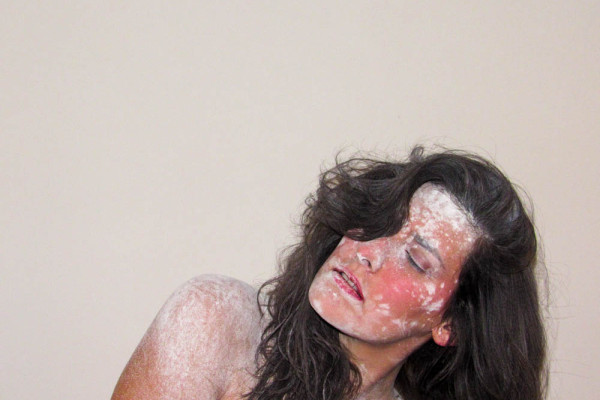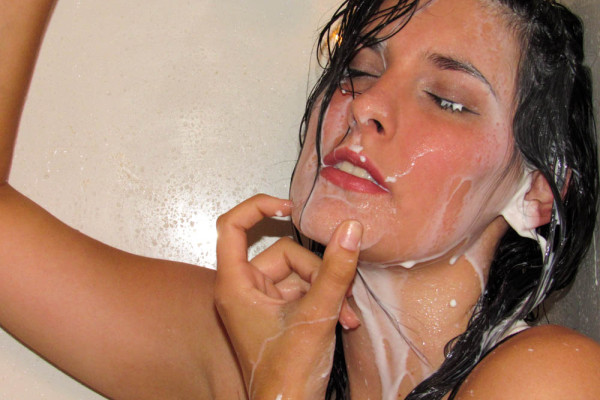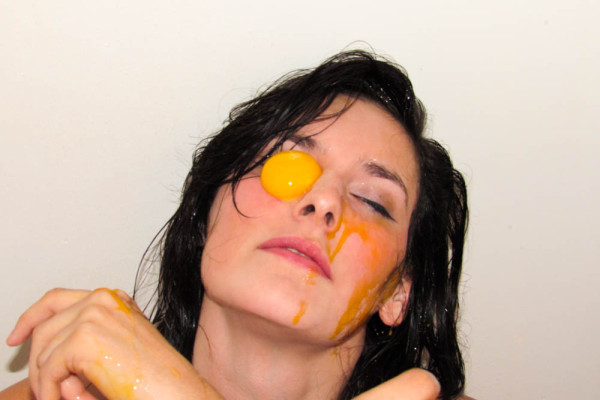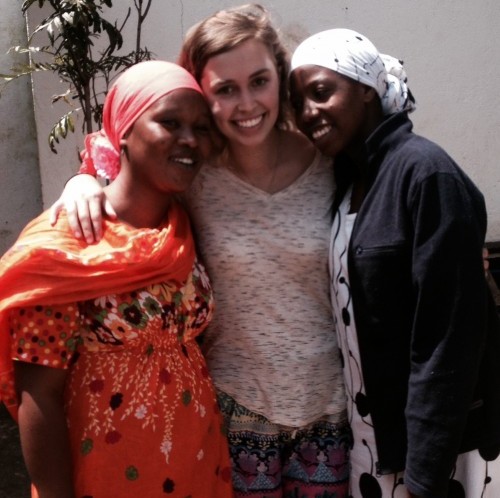(Written by Anonymous)
As most people will tell you, high school is not easy.
I went to a small, all-girls, private school in Greenwich, CT, which was my own personal version of hell. I was out of place in so many ways when I started 9th grade. These girls bought backpacks worth hundreds of dollars, while I bought mine for $20 at Target.
They were all so beautiful. The majority looked like Barbie dolls: tall with straight, silky hair, skinny and radiating with confidence. Meanwhile, I was tiny with thin, frizzy hair, quiet, and meek. Keep in mind, there were a few special butterflies like myself, but I stand by the fact that most girls were outwardly flawless.
Still, I tried to keep positive and enjoy my experience for what it was.
However, when you’re trying to discover your identity, it doesn’t help when you’re surrounded by women who show you everything that you are not. My meager confidence dwindled, and I started to keep my head down. I tried to be friends with some of the kinder girls, and that worked out for a while.
I got particularly close to one girl, Anna, and we became best friends. She had severe depression and anxiety and needed me there to help her and be there for her; a role that I was more than happy to take on.
When Anna’s troubles got too much for her in 12th grade, she decided to transfer to a high school in a different state.
I was left alone.
I thought that some of the other girls we would hang out with might reach out to me, given how devastated I was by Anna leaving. But instead, they took her transfer as an opportunity to stop hanging out with me once and for all. As it turns out, they only tolerated me because they had been friends with Anna many years before I arrived.
I spent the remainder of my senior year alone, surrounded by a sea of girls who acted like I was invisible. By the time graduation came about, I was beyond relieved to never have to step foot in those halls again.
I left immediately after graduation to find work at a beach town in Long Island three hours away so I would not have to run into anyone I knew. I left high school with a mistrust of females my age that reached down to my core.
I would avoid other girls at all cost, for fear of being shunned.
I hated how the girls in high school made me feel, and that hatred generalized itself to include anyone who reminded me of them. My mother, who had always been an amazing supporter for me, decided that I needed to overcome my fear of women before entering college, and I think a part of me agreed with her.
As a graduation present, she wanted to sign us up for a surf trip in Nicaragua. The catch? It was ONLY girls.
I have loved surfing since I was little and the idea of a surf trip sounded incredible to me, but I did not want to go.
The idea of spending a week with only women terrified me. After much debate, I decided that I could not miss out on an opportunity to surf in a country on my bucket list, and I really was hoping that my least favorite gender would redeem themselves.
The day my mom and I arrived at the surf camp, we were greeted by the women who ran the camp, who were (to my delight!) two beautiful, tall blonde women, just a few years older than me. I couldn’t swallow my disdain.
We met the other women in the program: another mother-daughter pair and the other female surf instructors. The instructors explained to us that each day, we would go to a beach and the instructors would take us into the ocean and coach us to improve.
Being already proficient at surfing, I assumed that I could just go out into the water and surf alone and would not have to interact with the others. With that thought in mind, I slept peacefully that night.
As the week went on, I found that all of the women in the program were individually inspiring. The two blonde women, Noelani and Lauren, were encouraging and supportive. They helped me improve my surfing, and I found myself wanting to spend time with them.
As it turns out, Noelani didn’t like the people she went to college with and did not enjoy her experience there. She showed me that it was okay that I didn’t fit in during high school and made me realize that there was much more to come.
Halfway through the trip, tragedy struck at home.
One of my sister’s friends was killed in a boating accident. My mom and I were shocked and devastated. Noelani, originally from Hawaii, showed us how to make leis out of flowers to celebrate her life rather than mourn her death. Together, we released the leis into the ocean and prayed for her soul.
Surfing was something that was always extremely important to me, but until this trip, my mom had never stood up on a surfboard. Noelani and Lauren brought my mom and I closer as they helped her reach her goal. When my mom first stood up on the board, I was glowing with pride and felt like my mom was proud of me.
All of the mother-daughter pairs at the surf camp had different qualities. The mother, Shelly, seemed hard and strict at first, but throughout the experience she softened.
The daughter, Maya, was about 12 years old and loved to read. She was tiny with short dark hair, and I couldn’t help but be reminded of myself when I was her age. She would tell me about her stories, and I would tell her about mine. I could tell how much she looked up to me.
On the final day of the trip, Noelani asked me if I had reached the goal I set for myself on the first day: to master dropping in on steep waves. While I did reach this goal, I admitted to myself and Noelani that I had also reached a different goal: to love myself for who I was.
My friendships with these women made me realize that my problem wasn’t with women, it was with myself. People are going to act how they are going to act, and there is nothing I can do about that. What I can do is not let others dictate my self confidence.
It has been a year and a half since that surf trip, and ever since then, I remember that I choose my own worth. I choose what impact I am going to make. I choose.








